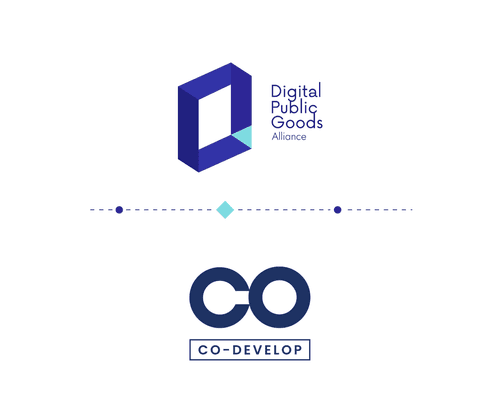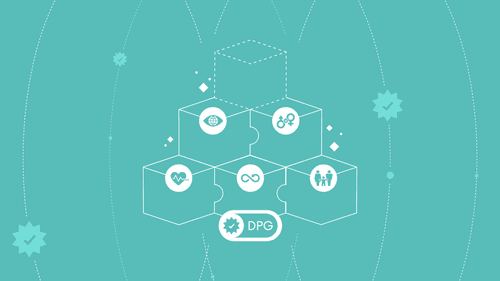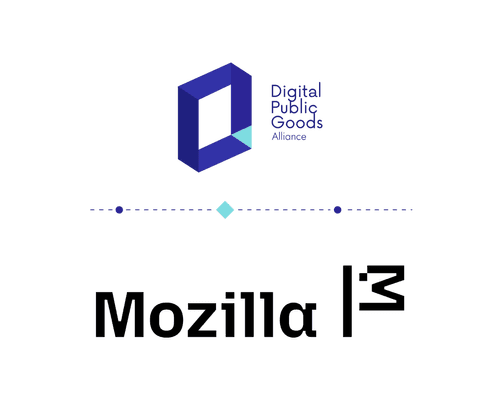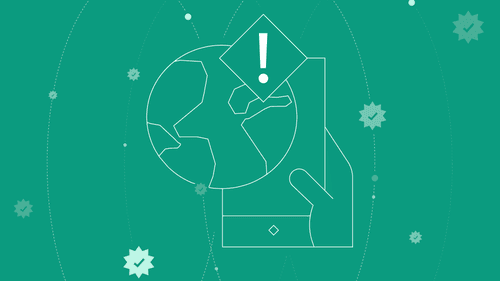Leveraging DPGs for Rapid Response to Urgent Global Challenges
Authors: Max Kintisch, Director of Research & Urgent Global Challenges, DPGA Secretariat
The global development landscape is facing a dual crisis. On one hand, we are witnessing a rise in Urgent Global Challenges (UGCs)—events that exceed routine disaster response capacities, frequently cross borders, and require coordinated international action. On the other hand, the resources available to meet these challenges had been shrinking, with global aid budgets having declined by up to 17% in 2025.This raises a central strategic question: How can institutions ensure that digital systems can be mobilised rapidly and effectively when the next major shock occurs?The DPGA Strategy 2023–2028 identifies a clear objective: by 2028, digital public goods (DPGs) should form a default component of the international community’s approach to preventing and responding to UGCs. Target 4 outlines the development of a global methodology for rapidly establishing communities of practice, as well as financing mechanisms to support relevant DPGs.At the DPGA Annual Members Meeting (AMM25) in Brasília, policymakers, practitioners, and technologists met to translate this objective into a concrete trajectory for 2026.Defining the Scope: Readiness for ResponseWhile mitigation and long-term recovery remain essential, discussions at the AMM25 underscored that the distinctive contribution of DPGs lies in rapid operational activation. UGCs are characterised by urgent timelines, uncertainty, and the need for coordinated digital action across institutions and borders. For this reason, the emerging focus is on scalable process models—structured methodologies that enable governments and partners to deploy and adapt digital tools quickly and systematically.It also became clear that rapid response is a cross-cutting theme that interacts with broader digital and governance ecosystems. Crises often generate significant pressures in areas such as:Information pollution, where inaccurate or misleading information disrupts coordination and decision-making;Digital public infrastructure (DPI), where foundational systems such as identity, payments, and registries must remain functional under degraded conditions or elevated demand;Climate-related events, which increasingly require real-time data, interoperable systems, and rapid mobilisation of sector-specific tools.These intersections demonstrate that readiness for response is not a discrete domain but an integral component of multiple DPGA workstreams.Participants also identified key vulnerabilities that frequently arise in crisis contexts, helping to clarify where process models must provide operational guidance:Delays or barriers in data sharing, often linked to unclear legal frameworks or governance arrangements;Connectivity disruptions, reinforcing the need for offline capability and low-bandwidth optimisation;Insufficient local implementation capacity, leading to reliance on external actors during periods when local expertise is most needed;Fragmentation among digital systems, where tools exist but lack validated workflows, integration pathways, or predefined institutional responsibilities.Given the evolving nature of UGCs and the variation in country contexts, this scope will remain an ongoing discussion within the DPGA community.Evidence on DPG Value: Rapid Adaptation and ResilienceAt the AMM25, experts presented concrete examples demonstrating how DPGs have supported rapid response in practice. Two attributes were repeatedly highlighted: Rapid adaptation and resilience.1. Rapid Adaptation and Repurposing During COVID-19, the ability of open-source platforms to be reconfigured on short timelines proved critical. Pamod Amarakoon (Director HISP Sri Lanka) described how DHIS2 was adapted to support a port-of-entry tracking system within days. This reflects broader research showing that open and modular systems enable unplanned yet essential adaptations during emergencies.2. Resilience: Stable and Scalable Infrastructure Emily Bennett, Head of Digital Public Solutions at UNICC, highlighted the importance of robust and secure digital infrastructure to maintain continuity of operations under crisis conditions. Building on this, she also noted that tools deployed in emergency contexts can continue to deliver value well beyond the crisis itself. She pointed to UNICC’s experience deploying iReport in eight countries, initially designed for short-term use around critical events, but later institutionalised by several governments once its broader usefulness became clear. This experience highlights the importance of considering post-emergency sustainability and long-term operational use when deploying DPGs for crisis response. Likewise, Zhongxin Chen, Senior IT Officer, D4I Lead at FAO) demonstrated how the organisation’s digital infrastructure for agrifood systems - FAO Agro-informatics Platform (FAIP) supports emergency agricultural and food security operations, pointing to the sectoral breadth of DPG relevance.Insights from Brasília: The "Status Quo" MapFollowing the expert panel, workshop participants engaged in a co-design exercise. The resulting "status quo" maps highlighted several persistent challenges:Technology: Offline capability remains essential for disaster resilience, and participants underscored the importance of low-code/no-code approaches to support rapid local adaptation.Governance: In many countries,legal frameworks to support interoperability and cross-border data sharing are still absent. Internal governance structures for emergency data use are also frequently underdeveloped.Support and Capacity: Discussions highlighted limited availability of local implementer networks and a continued reliance on external consultants, both of which hinder rapid deployment and long-term sustainability.The Way Ahead: Ideas for Strengthening ReadinessDuring the discussions, participants put forward several possible ideas for how readiness could be strengthened, without treating any of them as settled solutions. One idea was to create a shared, pre-crisis environment where different digital public goods could be set up quickly, tested together, and run through realistic emergency scenarios to surface gaps and improve how systems work together before a real shock occurs. Another idea focused on people rather than systems, suggesting more structured ways to build local technical capacity so that technologists on the ground are better prepared to deploy, adapt, and maintain digital tools under crisis conditions. A third idea addressed institutional bottlenecks, pointing to the value of having practical legal and procedural resources prepared in advance—such as guidance on procurement, data sharing, and decision-making—to reduce delays when governments and partners need to act quickly. These ideas were discussed as part of a broader set of options, with the understanding that further exploration and refinement will be needed as the work continues. Strengthening readiness for response will require continued collaboration, evidence, and alignment across sectors and regions. The ideas emerging from Brasília offer a concrete foundation, but their impact will depend on the engagement of a broader community of partners. We invite stakeholders to help shape and advance this work as the DPGA refines its 2026 agenda. For questions or to get involved, please contact Max Kintisch, Director of Research & Urgent Global Challenges of the DPGA Secretariat, at max@digitalpublicgoods.net.









